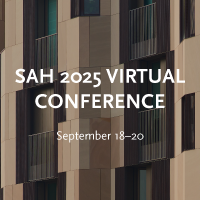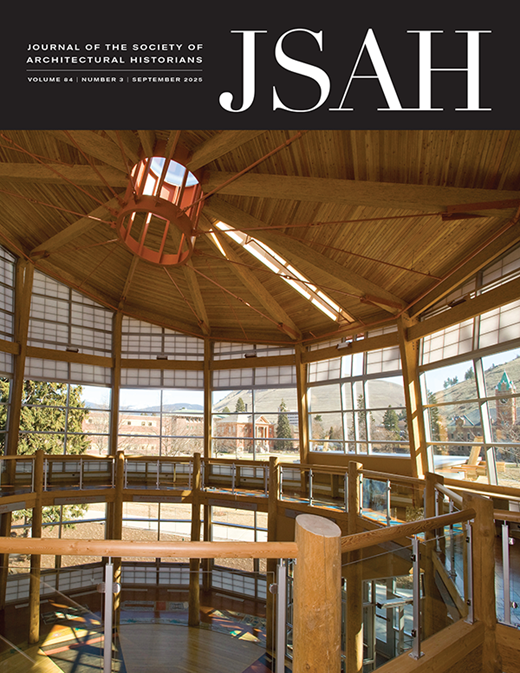Feb 8, 2022
by
Ana Maria Leon, Charles Davis II, Lawrence Chua
This is the second part of the conversation from the Unlearning Workshop organized by the Central New York Urban Humanities Working Group, Dec 9, 2020. For Part I follow this link.
Unlearning Pedagogy
Lawrence Chua: In this panel, Ana María León and Charles Davis II shared their experiences of teaching in a department of art history and a professional school respectively and responded to questions of unlearning pedagogy. How do educators begin to unlearn the conventions and structures of the disciplines and institutions in which we are embedded as architectural historians? What is the potential for reimagining the role of history courses in the larger curricula of departments, disciplines, or institutions with a renewed consciousness of the ways that imperialism and racial capitalism have structured disciplinary knowledge and academic and professional institutions?
Ana María León: I'm joining you today from the land of the Huancavilca, in a territory known as Guayaquil, both before and after the Spanish conquest. I'm going to share with you this course, which finished as a methods course and I'll just briefly tell you that story. In her groundbreaking book, Potential History: Unlearning Imperialism, Ariella Aïsha Azoulay proposes that because photography is complicit with imperialism, then unlearning photography as a field “means first and foremost foregrounding the regime of imperial rights that made its emergence possible.” Similarly, unlearning the methods of architectural history as a field means, first and foremost, foregrounding the regime of imperial mandates that have made the emergence of architectural history impossible. A little tired of complaining, but not acting on the whiteness, privilege, and Eurocentrism of architectural history and theory—and I mean no action by myself—I realized that the only way to reject these markers of white supremacy was to foreground the construction of architecture itself as a white supremacist project and to offer alternative inroads into the methods needed to understand, resist, and dismantle this project. So, in the fall of 2019 I set out to teach a PhD seminar that did just that by borrowing methods from other disciplines in order to assemble a set of tools needed to write histories of spatial politics.
I go back again to Azoulay:
Unlearning imperialism aims at unlearning its origins, found in the repetitive moments of the operation of imperial shutters. Unlearning imperialism refuses the stories the shutter tells. Such unlearning can be pursued only if the shutter’s neutrality is acknowledged as an exercise of violence; in this way, unlearning imperialism becomes a commitment to reversing the shutter’s work.[1]
I organized the course in a way that looked specifically into the methods for writing these histories of withdrawal or refusal. We started by reading, on the first day of class, extracts from scholars, activists, and intellectuals reflecting on the position of the historian, the dangers of extraction, essentialism, and identification. I then divided the course into four big sections. The first section, “Systems of Domination” included coloniality, settler colonialism, and anti-Blackness as a constitutive component of settler colonialism. We then had a section on “Technologies” mobilized by these systems such as land dispossession, subalternity, and the subjugation of the body. Then we went on to a series of more recent “Systems of Control,” including nationalism and culture, labor, and neoliberalism. We had a final section that I tentatively titled “Escapes,” including revolution, infrapolitics, pedagogies of freedom, and self-determined imaginaries.
Read the full article
here
Ana María León first joined SAH in 2009. She served as a session chair at the 2018 and 2021 SAH annual conferences, and currently serves on the SAH Board and the David B. Brownlee Dissertation Award Committee.
Charles Davis II became an SAH member in 2009, and currently serves on the SAH Board and the SAH IDEAS Committee. He served on the Sally Kress Thompkins HABS Committee in 2020, and is a founding member and co-chair of the SAH Race and Architectural History Affiliate Group.
Lawrence Chua initially joined SAH in 2006. He received two fellowships, an Annual Conference Graduate Student Fellowship in 2007 and a SAHARA Travel fellowship in 2011. He served as a session chair at the 2021 SAH annual conference.


